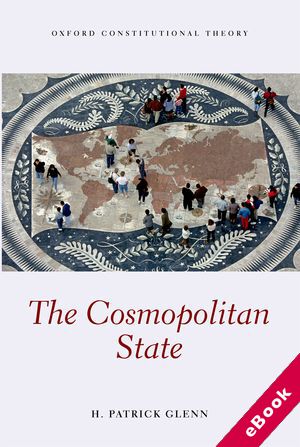
The device(s) you use to access the eBook content must be authorized with an Adobe ID before you download the product otherwise it will fail to register correctly.
For further information see https://www.wildy.com/ebook-formats
Once the order is confirmed an automated e-mail will be sent to you to allow you to download the eBook.
All eBooks are supplied firm sale and cannot be returned. If you believe there is a fault with your eBook then contact us on ebooks@wildy.com and we will help in resolving the issue. This does not affect your statutory rights.
For more than two centuries the idea of the nation-state has been widespread. The expression is now widely used and is even to be unavoidable. The 'nation-state' implies that the population of a state should be homogenous in terms of language, religion, and ethnicity; the nation and the state should coincide. However history demonstrates that there never has been, and there never will be, a nation-state. Human diversity is manifest in states of all sizes, locations, and origins.
This wide-ranging book argues that there should be no regret in the recognition of this empirical reality, since the notion of a nation-state has been the justification for some of the worst atrocities in human history. Since the nation-state is impossible, all states are cosmopolitan in character. They are cosmopolitan regardless of the language of their constitutions or official teaching and regardless of the extent to which they officially recognize their own diversity. The most successful states are those which are most successful in their own forms of cosmopolitanism. Cosmopolitan ways are infinitely varied, however, and must be sought in the intricate workings of individual states. The cosmopolitan character of states is necessarily reflected in their law. The main instruments of legal cosmopolitanism have been those of common laws, constitutionalism, and what is best described as institutional cosmopolitanism. The relative importance of these legal instruments has changed over time but all three have been constantly operative, even in times of attempted national and territorial closure. All three remain present in the contemporary cosmopolitan state, understood in terms of cosmopolitan citizens, cosmopolitan sources and cosmopolitan thought. The cosmopolitan state is, moreover, the only appropriate conceptualization of the state in a time of globalization.
This book outlines the subtlety of the law of cosmopolitan states, law which has survived through periods of nationalism and which provides the working methods for the reconciliation of diverse populations. Combining law, history, political science, political philosophy, international relations, and the new logics, it demonstrates that the idea of the nation-state has failed and should yield to an understanding of the state as necessarily cosmopolitan in character. This will be invaluable reading to all those interested in constitutional law, international law, and political theory.